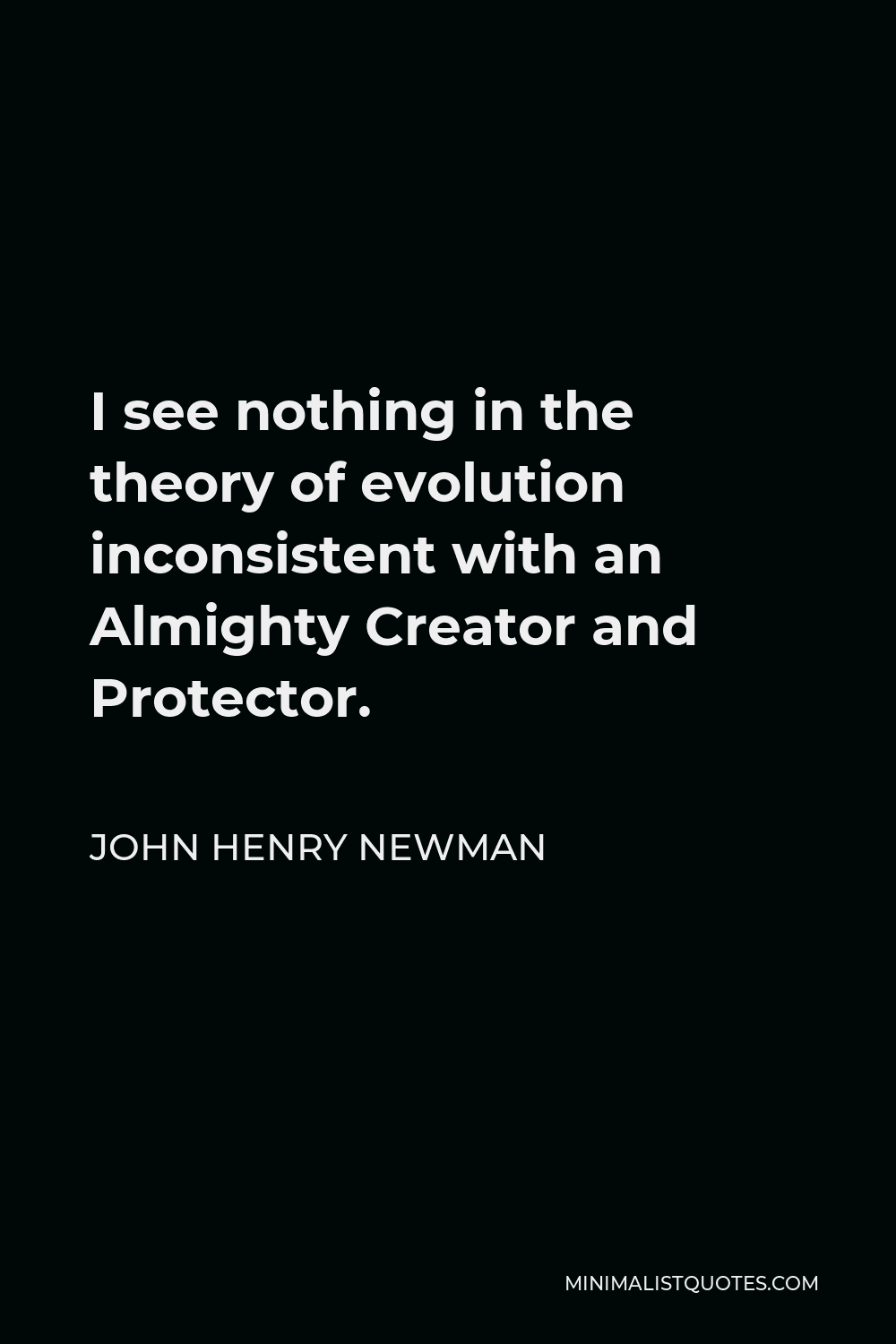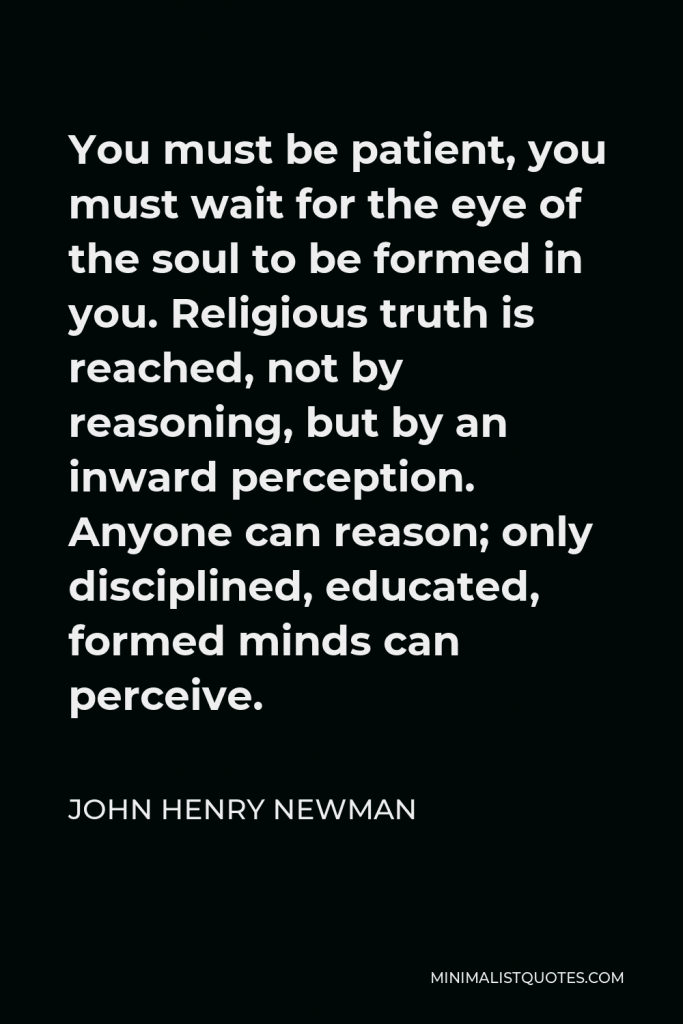There is a knowledge which is desirable, though nothing come of it, as being of itself a treasure, and a sufficient remuneration of years of labor.
JOHN HENRY NEWMANFlagrant evils cure themselves by being flagrant.
More John Henry Newman Quotes
-






-






Somehow I am necessary for His purposes, as necessary in my place as an Archangel in his.
JOHN HENRY NEWMAN -







To holy people the very name of Jesus is a name to feed upon, a name to transport. His name can raise the dead and transfigure and beautify the living.
JOHN HENRY NEWMAN -







By a garden is meant mystically a place of spiritual repose, stillness, peace, refreshment, delight.
JOHN HENRY NEWMAN -






I see nothing in the theory of evolution inconsistent with an Almighty Creator and Protector.
JOHN HENRY NEWMAN -






Flagrant evils cure themselves by being flagrant.
JOHN HENRY NEWMAN -







When you feel in need of a compliment, give one to someone else.
JOHN HENRY NEWMAN -






Faith ventures and hazards . . . counting the costs and delighting in the sacrifice.
JOHN HENRY NEWMAN -







To take up the cross of Christ is no great action done once for all; it consists in the continual practice of small duties which are distasteful to us.
JOHN HENRY NEWMAN -






I sought to hear the voice of God and climbed the topmost steeple, but God declared: “Go down again – I dwell among the people.
JOHN HENRY NEWMAN -






Egotism is true modesty. In religious enquiry each of us can speak only for himself.
JOHN HENRY NEWMAN -






It is often said that second thoughts are best. So they are in matters of judgment but not in matters of conscience.
JOHN HENRY NEWMAN -






Go down again – I dwell among the people.
JOHN HENRY NEWMAN -







This is what the Church is said to want, not party men, but sensible, temperate, sober, well-judging persons, to guide it through the channel of no-meaning, between the Scylla and Charybdis of Aye and no.
JOHN HENRY NEWMAN -






I shall drink to the Pope, if you please, still, to conscience first, and to the Pope afterwards.
JOHN HENRY NEWMAN -







You must be patient, you must wait for the eye of the soul to be formed in you. Religious truth is reached, not by reasoning, but by an inward perception. Anyone can reason; only disciplined, educated, formed minds can perceive.
JOHN HENRY NEWMAN






